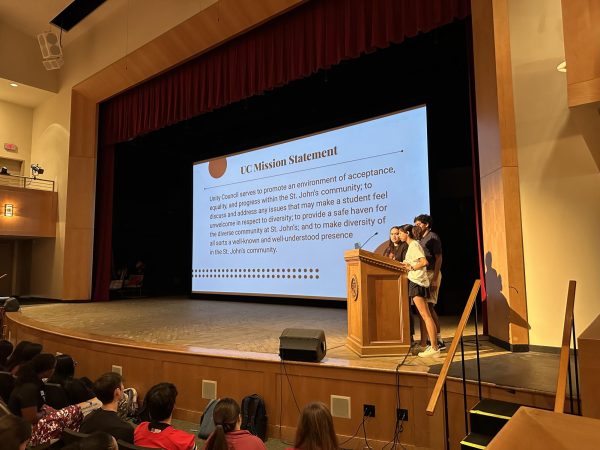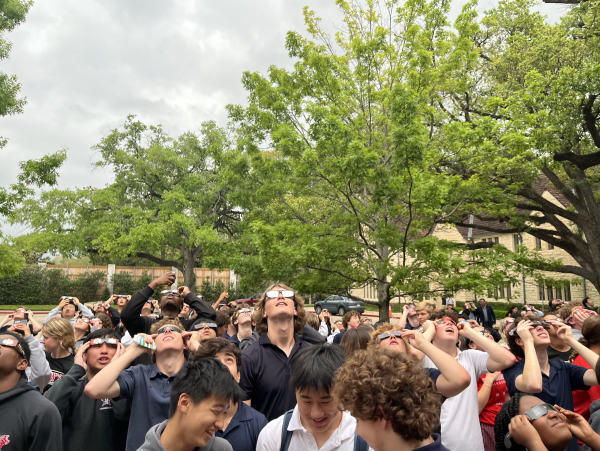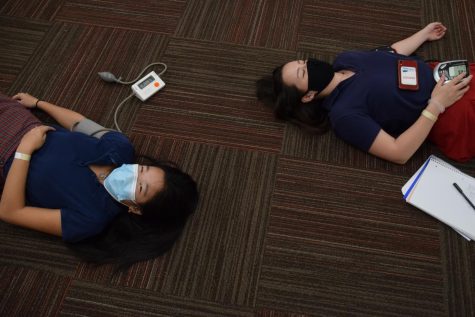College Board cancels SATs, moves APs online
College Board announced the cancellation of the March and May SAT administrations.
Junior David Hindman’s decision to skip a Boy Scout campout the week of his first SAT was a difficult one—the soon-to-be Eagle Scout had rarely missed a campout. He even forfeited valuable time writing his English paper to take one more practice test. That week, the SAT was Hindman’s priority.
Hindman was never able to take the test.
The College Board sent all test-takers an email the night of March 13 informing them that the March 14 SAT had been cancelled. Growing fears surrounding the coronavirus (COVID-19) outbreak prompted their decision.
Hindman resents that the time he dedicated towards the SAT is going to waste.
“I wish I had that time back so I could’ve worked on my English paper instead of preparing for a test that I’m not going to be able to take until several months from now,” Hindman said.
The College Board announced a few days later that they were cancelling the May SAT and the March makeup administration, which was scheduled in light of the original date’s cancellation.
These cancellations have presented a singular set of challenges for juniors nationwide. Since he registered for two SAT subject tests in June, the earliest Hindman can take his first SAT will be the August of his senior year, since the exam is not administered in July.
“I honestly didn’t think that waiting until March of junior year was waiting until the last minute,” Hindman said.
Hindman had planned to complete his Eagle Scout project and brainstorm ideas for a new club over the summer. He will now be forced to once again sacrifice that time to prepare for the SAT.
For junior Nicholas Sorak, the March SAT was the culmination of months of preparation for the test, including an eight-session course with Advantage Testing.
“I felt incredibly prepared for this time, and it would have been nice to knock it out knowing [I had] done my best,” Sorak said.
The SAT is not the only major standardized test falling victim to the ongoing uncertainty surrounding the COVID-19 outbreak. The ACT was postponed from April 4 to June 13.
While most institutions have not yet announced changes to their testing policies for the Class of 2021, Case Western Reserve University announced last week that they will allow all rising seniors to submit an application without SAT or ACT scores. Other institutions that are going test optional include Mansfield University, Millersville University, Westminster College and Oregon State.
In addition to admissions tests being cancelled on March 20, the Advanced Placement (AP) program implemented significant changes to the 2020 exams. Unlike previous years’ exams that contained several sections including multiple choice, long and short answer questions and listening and speaking portions, all 2020 exams will be 45-minute free-response exams. Students can choose from two national test dates and will be able to complete the exams from their homes on any device.
“I am disappointed [the exams] are online,” junior Maddie Mahoney said. “I was looking forward to the English [Language] exam because my writing has improved this year, and I think making [the exams] online opens a lot of opportunities for kids to cheat.”
The COVID-19 pandemic has impacted other aspects of the college admissions process as well. Most colleges have cancelled all campus tours and information sessions for the foreseeable future. For juniors like Hindman, who was planning on visiting several schools over spring break, virtual tours and websites are the only alternative. At colleges including Washington University in St. Louis, UT-Austin and Northwestern, spring semester information sessions are now virtual. Students can register online to hear from representatives and also ask questions.
“If I am doing a virtual campus tour online, sure every school is going to have lawns and trees, but it’s different when you are actually able to be there and appreciate the size,” Hindman said. “It is the excitement you feel when you are on campus that you don’t feel when you are at home.”

Grace is a senior in her third year on Review. She won a Scholastic Writing Gold Key award for journalism and is an avid photographer.


















